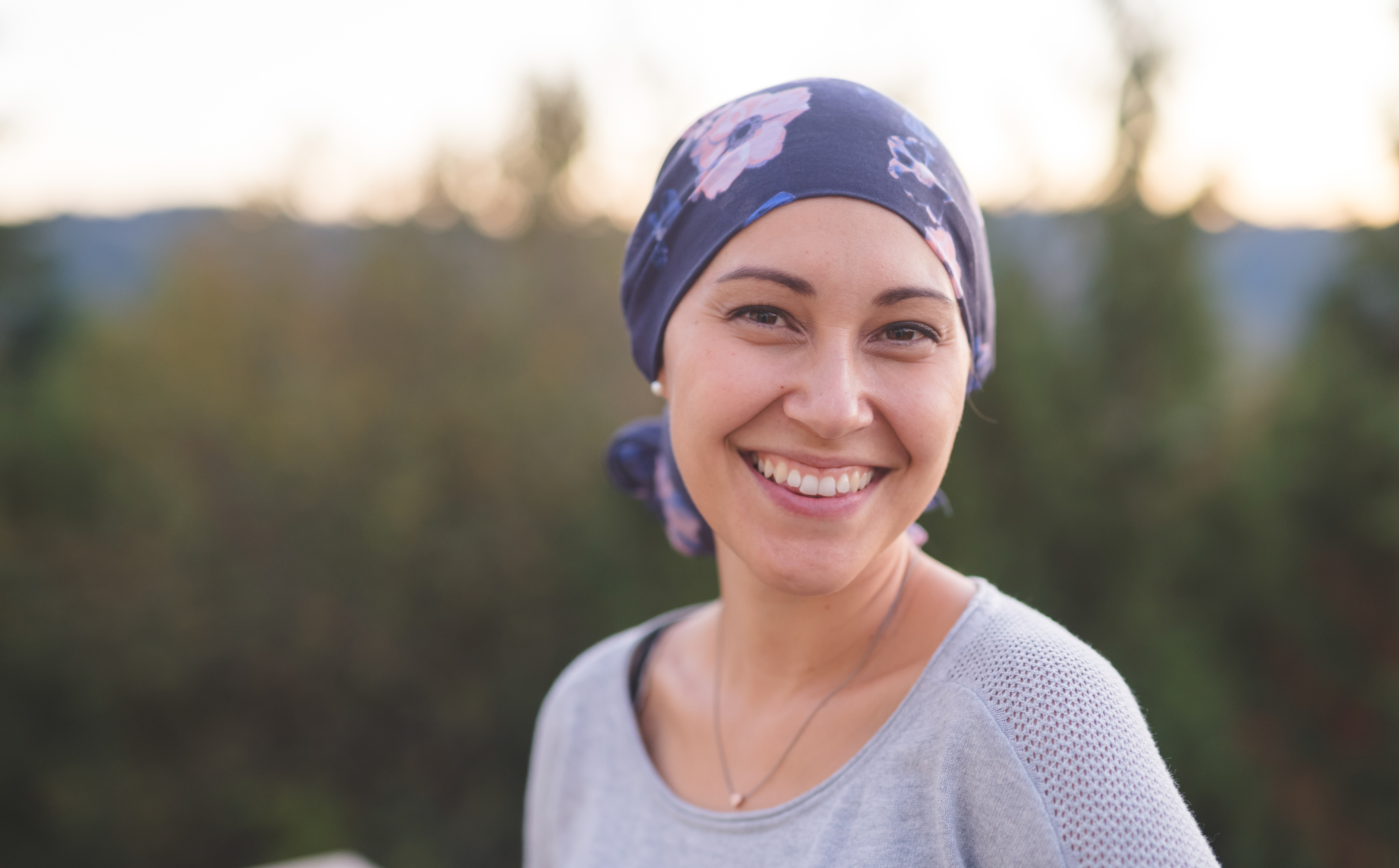- Home
- Conditions we treat
- Blood cancer
- Myeloma
What is myeloma?
What is myeloma?
Myeloma is a type of blood cancer that develops from plasma cells in the bone marrow.1 It is referred to as multiple myeloma if it appears in multiple parts of the body.2
Plasma cells are white blood cells that form part of your immune system and help fight infection.3
When diseased, these plasma cells can turn into cancerous myeloma cells.1
If the myeloma cells multiply, they can crowd the bone marrow and prevent it from making enough red and white blood cells and platelets.1,2
As a result, people with myeloma may be at risk of anaemia, infection, bleeding, and bruising.1,2
Myeloma cells may gather in groups that form tumours in the body, usually in the bone marrow and on the surface of bones.1,2
The tumours can cause bones to become brittle and easy to break, and can lead to increased calcium in the bloodstream.2,4
Myeloma symptoms may differ from person to person; early stages of the disease may not present obvious signs or symptoms which can become more noticeable and apparent as the disease progresses.1 Doctors refer to this as “CRAB”:1,5
- C for increased calcium
- R for renal (kidney) problems
- A for anaemia
- B for bone changes
People with myeloma may experience a range signs and symptoms such as:1,4
- Anaemia
- Pain (usually bone pain)
- Fatigue
- Weight loss
Having one or more of these symptoms doesn't necessarily mean that you have myeloma - but it is recommended to make an appointment with your GP or specialist to discuss any questions that you may have.
It's not fully understood what causes myeloma, yet some factors appear to increase the risk, including:1,6
- Age (usually older persons over 65)
- Race
- Sex
If you have one or more of these risk factors, and are concerned or have further questions, it’s best to have a chat with your GP for more information.

Make an enquiry
Contact us today to find out how GenesisCare can help you.
Diagnosis
Diagnosing myeloma
If your doctor suspects myeloma, they may order specific tests such as:1,6
- Blood tests
- Urine tests
- Bone marrow biopsy
- Scans such as computed tomography scan (CT scan), positron emission tomography (PET scan) or others
If you are found to have myeloma, your doctor will discuss the next steps. To determine what stage your cancer is at, your treating doctor may use the Revised International Staging System (R-ISS) which divides myeloma into three stages.7
Find a doctor
Search for Myeloma specialists in your state.
Treatment options
Treatment options for myeloma
Treatment for myeloma depends on a range of factors, and your treating doctor can explain more about these. There are also various treatment approaches for myeloma itself, as well as any associated diseases or complications that may arise.8
There are also other treatment approaches including:8-10
- Autologous stem cell transplantation (ASCT)
Some of the broad categories that myeloma medications belong to are:8,9
- Immunomodulatory drugs (IMiDs)
- Proteasome Inhibitors (PIs)
- Monoclonal antibodies
- Immunoconjugates
- Antibody-drug conjugates
- Chimeric antigen receptor (CAR) T-cell
- Alkylating agents
- Steroids

Cancer treatment often results in side effects, yet the type and severity of side effects may vary between individuals.11,12 You can ask your doctor for detailed information about side effects based on the treatment they recommend for you.
The following list may help when researching the types of activities and nutrition you can consider during treatment.13 Your treating doctor can also provide further information or point you towards the right resources:
- Get as much rest as possible
- Aim for a wholefood, varied diet, and we also encourage you to think about eating foods that interest you rather than what you think you should eat
- Appetite changes are common, and you may experience taste changes or nausea. Help manage this by eating small, frequent snacks and avoiding smells that make you nauseous
- Drink lots of water
- Reach out to support groups and others who have had cancer treatment
- Record your side effects in a diary or journal
- Speak to your doctor about incorporating some gentle exercise into your weekly routine
- It is important to acknowledge when you are fatigued and rest when you need to
- Ask for and accept help from family, friends and neighbours
- Be open with employers about your treatment and discuss flexible working options if you need them
Find a centre
Search for consulting and treatment locations near you.
Support services
Support services
![]()
Leukaemia Foundation
The national organisation dedicated to the care and cure of people living with leukaemias, lymphomas, myeloma and other related blood disorders.
- Albagoush SA, et al. StatPearls [Internet]. Treasure Island (FL): Multiple Myeloma; 2024 Jan (cited Feb. 2024). Access from: https://www.ncbi.nlm.nih.gov/books/NBK534764/
- Cancer Council Australia [website]. Myeloma. Last updated; Sept. 2023 [cited Jan. 2024]. Access: https://www.cancer.org.au/cancer-information/types-of-cancer/myeloma
- Hunter, CA & Sharma, P. StatPearls [Internet]. Treasure Island (FL): Histology, Plasma Cells; 2022, Dec. (cited Feb. 2024). Access from: https://www.ncbi.nlm.nih.gov/books/NBK556082
- Mukkamalla, SKR. & Malipeddi, D. Int J Mol Sci. 2021; 22(12): 6208.
- International Myeloma Foundation. International Myeloma Working Group (IMWG) criteria for the diagnosis of multiple myeloma [webpage]. Page accessed: Feb. 2024. Access from: https://www.myeloma.org/international-myeloma-working-group-imwg-criteria-diagnosis-multiple-myeloma
- Padala, SA. et al. Med Sci (Basel). 2021;9(1):3
- International Myeloma Foundation. International Staging System (ISS) and Revised ISS (R-ISS) [webpage]. Page accessed: Feb. 2024. Access from: https://www.myeloma.org/international-staging-system-iss-reivised-iss-r-iss
- Rajkumar, SV. & Kumar, S.. Blood Cancer J. 2020;10(9):94.
- Monteith, BE et al. Curr Oncol. 2023; 30(5): 4382–4401.
- National Comprehensive Cancer Network. NCCN Guidelines; Myeloma. Version 2.2024, Last updated Nov. 1, 2023 [cited Feb. 2024]. Access from: https://www.nccn.org
- Cancer Council Australia [website]. Cancer Side effects? [cited Jan. 2024]. Access: https://www.cancer.org.au/cancer-information/cancer-side-effects
- National Cancer Institute. U.S. Department of Health and Human Services. Side Effects of Cancer Treatment [webpage}. [Cited Oct. 2023]. Access from: https://www.cancer.gov/about-cancer/treatment/side-effects
- Cancer Council Australia [website]. Nutrition for People Living with Cancer. Page last updated July 2022 [cited Jan. 2024]. Access: https://www.cancer.org.au/assets/pdf/nutrition-and-cancer-booklet

You are leaving our website
You are now leaving our website. GenesisCare do not control this content and therefore are not responsible for its accuracy or reliability.
Disclaimer:
This website is provided for information purposes only. Nothing on this website is intended to be used as medical advice, or to diagnose, treat, cure or prevent any disease. It should not be used as a substitute for your own health professional's advice. Any medical procedure or treatment carries risks. Before proceeding with treatment, you should discuss the risks and benefits of the treatment with an appropriately qualified health practitioner. Individual treatment outcomes and experiences will vary.



